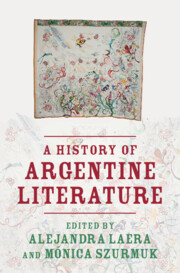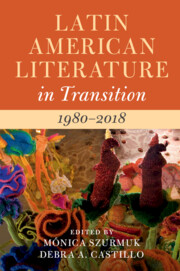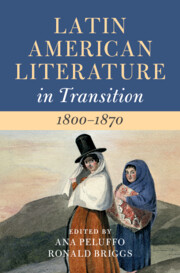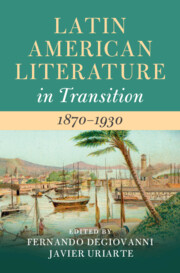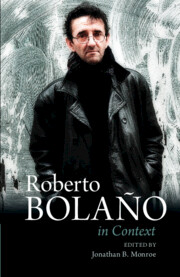A History of Argentine Literature
Argentine Literature continues to figure prominently in academic programs in the English-speaking world, and it has an increasing presence in English translation in international prizes and trade journals. A History of Argentine Literature proposes a major reimagining of Argentine literature attentive to production in indigenous and migration languages and to current debates in Literary Studies. Panoramic in scope and incisive in its in-depth studies of authors, works, and theoretical problems, this volume builds on available scholarship on canonical works but opens up the field to include a more diverse rendering as well as engaging with the full spectrum of textual interventions from travel writing to drama, from popular 'gauchesca' to celebrated avant guard works Working at the crossroads of disciplines, languages and critical traditions, this book accounts for the wealth of Argentine cultural production and maps the rich, diverse and often overlooked history of Argentine literature.
- Essays brought together in this volume propose a new trans-national and multilingual rendering of Argentine literature
- Offers original readings that account for the vitality and diversity of Argentine literature
- Contributors come from a wide variety of fields and perspectives
Product details
May 2024Hardback
9781009283045
574 pages
235 × 158 × 41 mm
1.01kg
Available
Table of Contents
- Acknowledgments
- Introduction Alejandra Laera and Mónica Szurmuk
- Part I. Literary Dates:
- 1. 1536: The creation of a literary space Loreley El Jaber
- 2. 1810: Patriotic voices Ezequiel Adamovsky
- 3. 1837: The foundation of a national literature Víctor Goldgel-Carballo
- 4. 1884: A literary field in formation Vanesa Miseres
- 5. 1910: A modern lettered City Fernando Degiovanni
- 6. 1926: Traditions old and new Patricio Fontana
- 7. 1948: Culture and the State Marcos Zangrandi
- 8. 1963: Experimentation and the common reader Gonzalo Aguilar
- 9. 1980: Memory and the Novel Fernando Rosenberg
- 10. 2001: Argentine narrative in the New Millennium Jordana Blejmar and Ben Bollig
- Part II. Critical Inroads:
- 11. Print culture in the Nineteenth Century Claudia Roman
- 12. Criollismo: Gauchos in literature and Film Nicolás Suárez
- 13. Race and nation Chisu Teresa Ko
- 14. Science in argentine literature Joanna Page
- 15. Essay on Territory: The Geography of National identity Adrián Gorelik
- 16. Music as sonic literature Esteban Buch
- 17. The Jewish presence in argentine literature Mónica Szurmuk
- 18. Emancipating: Twentieth-Century female writers, Journalists, and activists Nora Domínguez and Lucía De Leone
- 19. Dislocating tradition: Liminal, oblique and displaced writings Mariano Siskind
- 20. Mujeres raras: Patriarchal nightmares, dissident imagination Gabriel Giorgi
- Part III. Literary Names:
- 21. Sarmiento: Politics, culture, and spectacle Alejandra Laera
- 22. The Mansilla siblings: A story in syntony Claudia Torre
- 23. Martín Fierro: Subaltern voices Juan Pablo Dabove
- 24. Borges and argentine literature: A detour around the World Graciela Montaldo
- 25. Roberto arlt Sylvia Saítta
- 26. The Ocampo sisters Laura Arnés and Julia Kratje
- 27. AlfoScenesnsina Storni, Alejandra Pizarnik Gwen Kirkpatrick
- 28. Displacement and transfer in Julio Cortázar's Todos los fuegos el fuego Amanda Holmes
- 29. Manuel Puig's circuit bending: Literary listening against Surveillance Tom McEnaney
- 30. Operation Massacre: Dangerous journalism Martín Kohan
- 31. The politics of the poem: From Gelman to perlongher Edgardo Dobry
- 32. Scenes from postmodern life: Literary interventions in the public sphere Silvio Waisbord
- 33. Griselda Gambaro and beyond: a 'Dermography' of contemporary Women's theatre and performance Cecilia Sosa, Brenda Werth and Philippa Page
- 34. César Aira and the art of invention Sandra Contreras.

